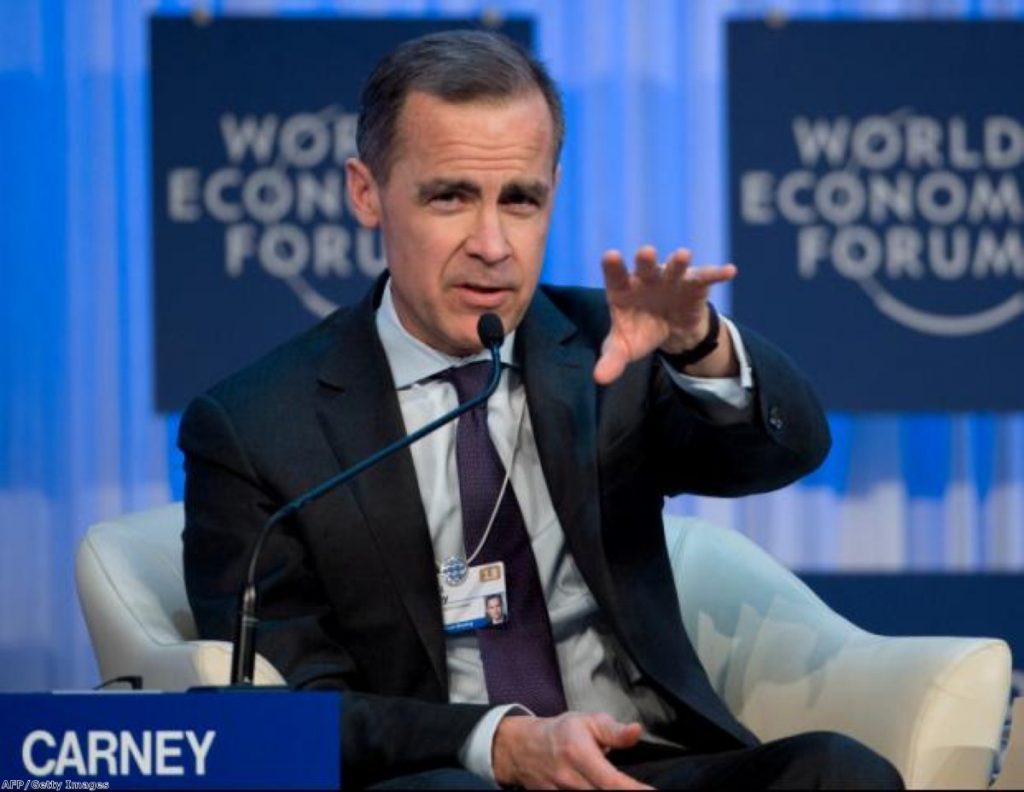First Commons grilling for Mark ‘Simply The Best’ Carney
Mark Carney got his first taste of life in the parliamentary spotlight this morning, when he faced MPs on the Treasury committee ahead of becoming governor of the Bank of England.
The governor of the Bank of Canada won plaudits for his articulate and direct answers to MPs' questions, but he faced tough questions on his pay and plans for fixing the UK economy.
Carney was asked to justify his total remuneration package of around £800,000, especially given the pay freeze at the Bank of England.
He pointed out there was no pension scheme and that the housing allowance was fairly typical for chief executives asked to move from cheap cities to expensive ones.


"I think you'll be earning it," committee member Angela Leadsom commented.
Elsewhere in his testimony, Carney said he was surprised that pundits back home had interpreted his decision to take the role as evidence of political aspirations.
"I'm surprised it's viewed as politically astute that taking one of most challenging jobs in central banking in another country would be viewed as political advantageous in my own country," he told MPs.
"If I had political ambitions I would have pursued them. I think this has revealed I don't have political ambitions."
Elsewhere in his testimony, Carney suggested he shared Mervyn king's "consensual" management style.
Carney will not take over from King until July. But he will already have begun grappling with the issues facing the UK economy, including the question of how appropriate his preference for more open 'forward guidance' is to Britain.
He is also thought to back a more flexible approach to setting interest rates, preferring to support growth over inflation. That could clash with George Osborne's hardline approach to economic issues, but the chancellor has declared Carney "simply the best" and enjoys his full support.
Carney will become the first non-British governor of the Bank ever and was a surprise choice by Osborne, who had been expected to prefer the Bank's current deputy governor Paul Tucker.
Under the reforms being pushed through by the coalition to the way the financial sector is regulated, the Bank will assume a central role, making Carney's position even more influential than King's ever was.
That makes his attitude to management critical, especially after King was criticised for having adopted too domineering an approach.
Rather than applying for the job, Carney was reportedly groomed by Osborne, who met him in Marseille, Mexico City and Washington in between visits to London.
Carney studied in Oxford, has a British wife and is expected to apply for British citizenship once he arrives.
He has been critical of the financial sector's failings despite his background at Goldman Sachs and, as chairman of the World Bank's financial stability board, has played a prominent role in international efforts to reform the way the global economy functions.
"One of the things we're doing as international regulators is not just designing rules but we're auditing the countries, from the UK to Canada to China, to see whether they're actually implementing these new rules," he said recently.
"And if they don't, we're going straight to the top. We're going to the leaders of the G20, and we're going to the media and the general public, and we're letting people know who's on track and who's lagging behind."
Carney will serve for five years as governor.

